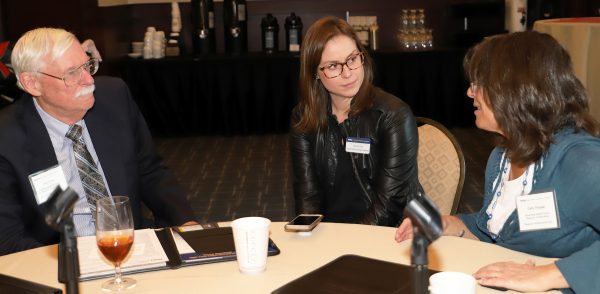Requests
- ADAMS Access Request Form
- Request for TAG
- External workshop request form
- Equipment Support Request Form
- RCC Mailing List and Research Interests
Resources
Contact RCC Support
The Research Capacity Core (RCC) of the Southwest Health Equity Research Collaborative (SHERC) is responsible for supporting health equity research efforts university-wide through their technical assistance group, methodological education workshop program, and infrastructure enhancement program.
Basic functions of RCC include helping health equity projects, programs and affiliated investigators to acquire, develop, implement and disseminate cutting-edge interdisciplinary research methods and emerging technologies.
RCC structure includes:
Scientific Support Accordion Closed
The Technical Assistance Group (TAG) is now housed within the newly founded CHER TAG Service Center.
TAG faculty and staff have a broad range of expertise to assist with all aspects of project development associated with health equity research including qualitative and/or quantitative support for research design, methodological details, and statistical analysis.
Education and Training Accordion Closed
This methodological workshop program includes opportunities for individual investigators and multidisciplinary groups to acquire cutting-edge methods and research protocols through attending internal and external workshops.
Internal Workshops
Content experts provide training for NAU faculty and staff, in a workshop format for a wide variety of methods and disciplines including research design and methodological/analytical tools that support health equity-related research. Workshops occur throughout the academic year and summer.
External Workshops
RCC also has limited support for faculty to attend external methodological workshops, trainings, or conferences to enhance their health equity-related research skills. Determinations on funding are based on research goals (SHERC assists biomedical, clinical, social and behavioral, and health equity research) and willingness to disseminate knowledge back to the NAU community.
Equipment and Software Accordion Closed
Through the Capacity Enhancement Program, we will provide access to qualitative, quantitative, and other computational tools and infrastructure as well as key multi-disciplinary lab and field equipment needs.
RCC as limited funds each year to support equipment repair and/or service contracts. The equipment should be used for research associated with health equity related projects that include clinical, behavioral, sociocultural, and basic science paradigms. Priority will be given to equipment that has multiple users. Faculty are highly encouraged to provide a minimum of 50% of the costs from other resources (grant, IDC support, Department, College, etc.).
RCC faculty and staff provide (qualitative and quantitative) research design, methodological expertise, informatics, and statistical support through the Center for Health Equity Research’s Technical Assistance Group (CHER TAG), and SHERC-oriented workshops focused on the goals of the SHERC cores and health equity-related projects.
Requests to the CHER TAG involving health research in social, biomedical, behavioral, or clinical studies may have services covered through RCC funding. RCC also provides research infrastructure support to NAU faculty and community partners engaged in health equity collaborative research.
Publicly Available Data
The RCC team has compiled a list of publicly available health-related electronic databases that NAU faculty can query in order to conduct their own secondary data analysis. These databases are searchable, and the data can be used to gather both general information and to access data that can be compiled to test novel hypotheses in social, behavioral and biological sciences. Please check out the links here:
Enhancing Interinstitutional Collaboration
We continue to enhance research at NAU through interinstitutional collaboration. RCC strengthens external interdisciplinary research partnerships to strategically build NAU research infrastructure in health equity-related research.
Specifically, RCC works closely with Arizona State University’s Institute for Social Science Research, Florida International University’s RCMI, and with other NIH supported centers, such as the American Indian-Alaska Native Clinical Translational Research Program (AI-AN CTRP). Also see American Indian and Alaska Native Research in the Health Sciences: Critical Considerations for the Review of Applications
These centers are able to support research infrastructure development and application of cutting-edge methods and analytical needs for SHERC faculty and research groups.
Data Use Agreement and Guidelines
For information on Northern Arizona University’s commitment to preserving, protecting and sharing data in accordance with applicable federal and state laws, regulations, policies, and higher education academic and scientific norms and best practices, visit the External Data Use Agreements page.
Please review the NAU Data Security Guidelines prior to any data use or collection.
Research Capacity Core—Our team

Catherine Propper
Research Capacity Core Lead
Co-Principal Investigator, Research Project #2
Professor, Department of Biological Sciences
Affects of development, reproduction and behavior on environmental contaminants

Research Capacity Core Co-Lead
Regents’ Professor, Emeritus
Ethnographic research design and methods, community based participatory design, social network analysis, qualitative sampling reliability and validity, health care systems research, cross-cultural applicability research design
Contact
Monica Lininger, PhD, LAT, ATC
TAG Service Center Director, Research Capacity Core Co-Lead
Associate Professor, Physical Therapy & Athletic Training
Psychometrics, questionnaire item development, study design, quantitative statistical analyses
Contact

Christine Kirby, MA
Program Coordinator, Senior, SHERC
Qualitative Research (including codebook construction), RCTs (protocols), Conversation-Discourse Analysis, and Program Expertise in REDCap, Nivo, Atlas.ti
Contact
Steven Barger, PhD
Core Faculty
Professor, Psychology, Population Health
Research design, measurement, analysis of complex surveys, cardiovascular disease risk, social relationships, health-related quality of life
Contact
Marcelle Coder, MA
Assistant Director
Internal human resources, budgetary oversight, research administration, sponsored project support
Contact
Emery Eaves, PhD
Core faculty
Associate Professor, Anthropology
Qualitative analysis, interpretation, evaluation, chronic pain, substance use
Contact

Viacheslav Fofanov, PhD
Core Faculty
Associate Director for Research and Graduate Programs, School of Informatics, Computing, and Cyber Systems (SICCS); Associate Professor, School of Informatics, SICCS
Statistical methods, database design, data quality, data entry, and coding, honest broker operations

Amy Gelatt, MPH, CHES
Research Coordinator, Center for Health Equity Research
Environmental determinates of health, environmental justice, health promotion and education, impact of greenspace on mental and emotional health, sustainable communities, structural determinates of health
Contact

Lisa Jane Hardy, PhD
Core Faculty
Professor, Anthropology
Director, Social Science Community Engagement Lab
Research Design, Community Based and Community Engaged Participatory Research, Raid Response Research and Action, Qualitative Methods, Knowledge Dissemination, Minority Health, Health Equity
Contact
Joseph Mihaljevic, PhD
Core Faculty
Assistant Professor, Ecological and Epidemiological Informatics, SICCS
Modeling infectious disease, virus epidemiology, statistical analysis
Mark Remiker, MPH
Research Coordinator, Senior, Center for Health Equity Research
Mixed Methods, Medical Record Abstraction, Database Development, Survey Development, Psychometrics, Basic Descriptive and Inferential Statistics, and Program Expertise in REDCAp, Qualtrics, SPSS
Contact

Heidi Wayment, PhD
Core Faculty
Professor, Psychological Sciences
Survey and experimental research design, SPSS, EQS, R. Psychosocial predictors of health behavior and coping with stressful life events
Contact
For further information, please complete our contact form.





